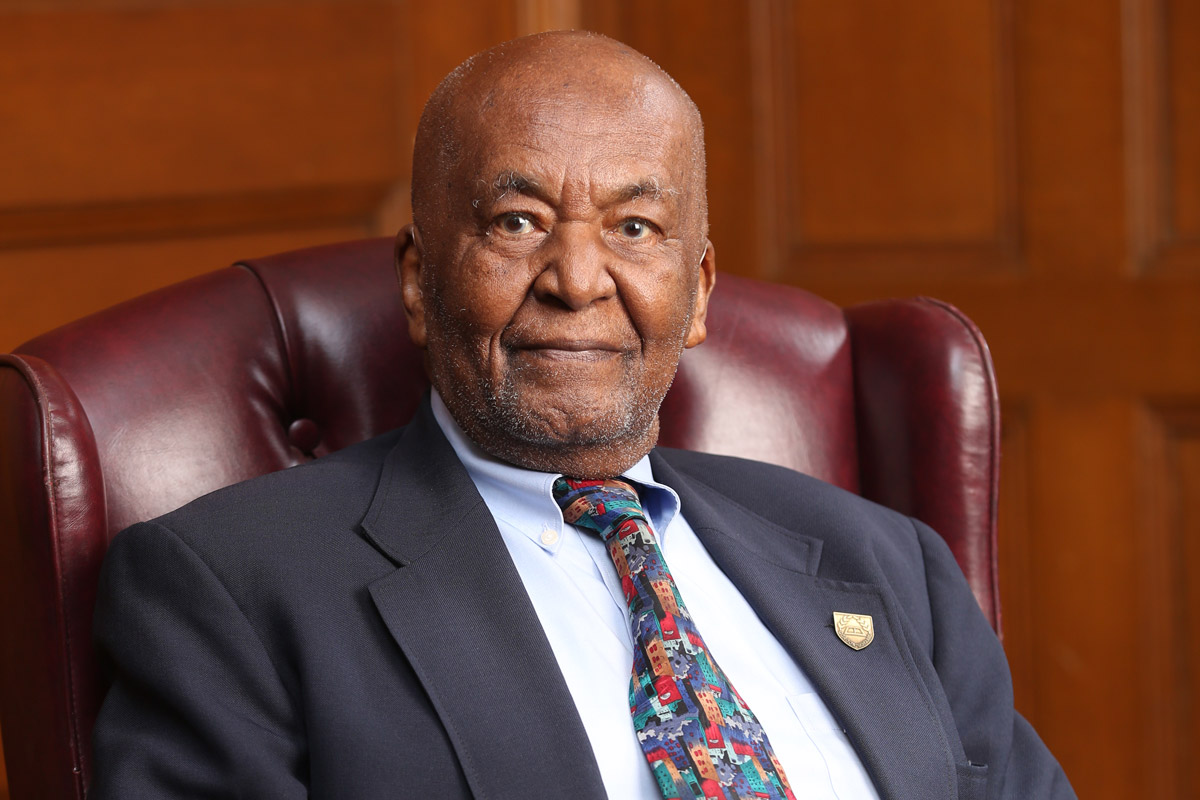Teachers College psychologist Edmund W. Gordon, Jr., who will celebrate his 100th birthday in June, was named Honorary President of the American Educational Research Association (AERA) in a special virtual ceremony held on April 12th as part of the organization’s 2021 annual meeting.
Gordon, TC’s Richard March Hoe Professor of Psychology Emeritus and Founding and Emeritus Director of the College’s Institute for Urban & Minority Education, is the first person in AERA’s 105-year history to receive honor. The title of Honorary President recognizes Gordon for his “pioneering scholarship on the gaps in education opportunities and supports for children of color and low-income students.”
“Not only has Dr. Gordon transformed the fields of education research, practice, and policy through his groundbreaking scholarship, but he’s been a lifelong mentor, colleague, and friend to countless numbers of researchers, teachers, and students,” said AERA President Shaun R. Harper, Provost Professor in the Rossier School of Education and Marshall School of Business at the University of Southern California.
Not only has Dr. Gordon transformed the fields of education research, practice, and policy through his groundbreaking scholarship, but he’s been a lifelong mentor, colleague, and friend to countless numbers of researchers, teachers, and students.
—AERA President Shaun R. Harper
In honoring Gordon, Harper was joined by Kenji Hakuta, Lee J. Jacks Professor of Education Emeritus at Stanford University, who led a brief conversation with Gordon, and four former AERA presidents: Linda Darling Hammond, President and CEO of the Learning Policy Institute and a former TC faculty member; Carol D. Lee, Professor Emeritus in the School of Education and Social Policy and in African-American Studies at Northwestern University; James Banks, Kerry and Linda Killinger Endowed Chair in Diversity Studies Emeritus at the University of Washington): and TC’s Amy Stuart Wells, Professor of Sociology & Education.
Gordon, who earned his education doctorate at Teachers College in 1957, has served the world as a psychologist, minister, community activist, writer, scholar, researcher, and educator. His many achievements include: pioneering the street youth worker model in Harlem in response to gang wars; founding (with his wife, the physician Susan Gordon, who passed away in 2016) one of the first comprehensive clinics serving underprivileged children, work that anticipated current efforts such as the Harlem Children’s Zone; participating in initial analysis of the landmark Coleman report; serving as research director for Head Start under President Johnson and helping to write the first Elementary and Secondary Education Act; founding IUME and later serving as TC’s Vice President for Academic Affairs and Acting Dean; being named emeritus professor at both TC and Yale University (where he is the John M. Musser Professor of Psychology Emeritus); and holding the position of Senior Scholar in Residence at the College Board.
From 2011 through 2013, Gordon chaired the Educational Testing Service’s Gordon Commission on the Future of Assessment in Education, which issued a landmark report that called on the nation to “reconceptualize the purposes of educational assessments” by developing tools that integrate assessment and classroom instruction, respond to the growing diversity of society, and harness the power of digital technology.
In November of 2019, Gordon chaired a major conference at TC, “Human Variance and Assessment for Learning: Implications for Diverse Learners of STEM,” which coincided with the publication of his newest book, Human Variance for Assessment and Learning.
Gordon is an AERA Fellow, was the inaugural speaker in 2004 for the AERA Annual Brown Lecture in Education Research, and received the AERA Distinguished Contributions to Research in Education Award in 2000 and the AERA Relating Research to Practice Award in 2010. In 1996–97, he chaired the AERA Task Force on the Role and Future of Minorities.
He is an elected fellow of the American Psychological Association, American Society of Psychological Science, and American Association for Orthopsychiatry, and a life member of the American Association for the Advancement of Science. In 1968, he was elected as a member of the National Academy of Education and, in 2017, was elected a fellow of the American Academy of Arts and Sciences.
Learn about a planned conference later this spring in honor of Edmund Gordon's 100th birthday.
